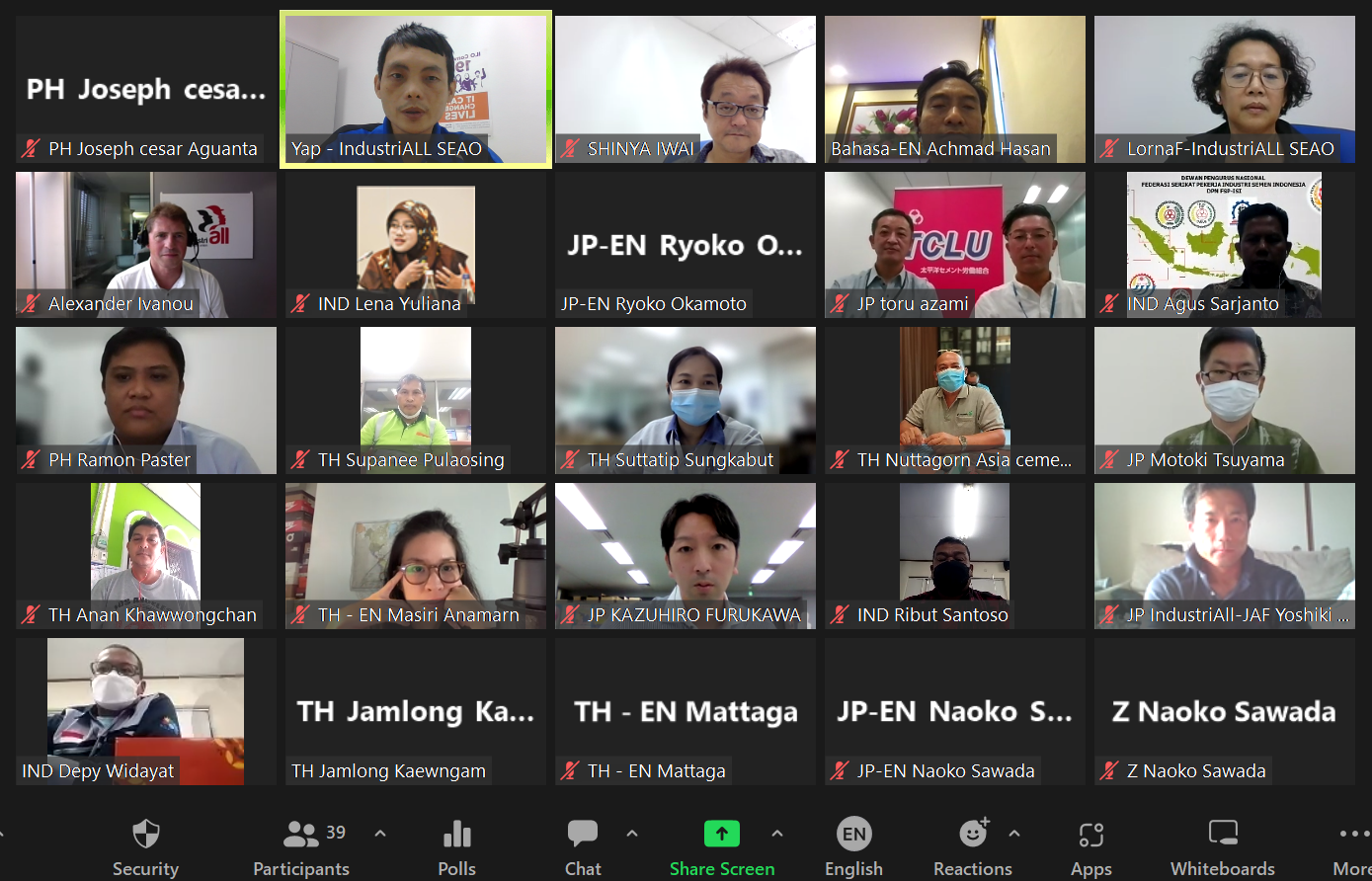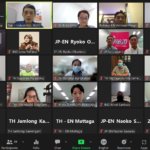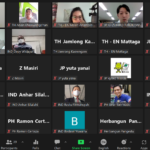31 August, 2022Organizing precarious workers into unions and realizing gender equality in the cement sector is the way forward, say IndustriALL affiliates in Asia Pacific.
During a regional, virtual workshop on 26 August, 30 participants from the cement industry in Indonesia, Japan, Philippines and Thailand discussed challenges faced by cement workers in the South East Asia region.
Overcapacity remains a major problem in the cement sector worldwide. With the war in Ukraine there are other challenges too, like high energy costs which a significant impact on the sector.
Prices for coal used in clinker production in South East Asia soared from US$20-30 to more than US$400 per ton, forcing companies to look for alternative fuel. While sustainable alternatives to coal to reduce emissions and costs exist, their impact on workers’ and nearby communities is not always known and requires union involvement.
Participants shared experiences over the increasing cases of employers using outsourced workers to replace permanent workers when they retire.
“Organizing precarious workers is a must. At the moment, most of the cement workers are outsourced workers with no job security, They are afraid to join the union due to intimidation. The union busting at PT Conch South Kalimantan Cement, subsidiary of Chinese MNC Anhui Conch Cement, has a chilling effect,”
said Agus Sarjanto, general secretary of Federation of Indonesian Cement Workers' Union.
They also raised the issue of gender inclusivity in the cement sector.
The Japanese Taiheiyo Cement Labor Union said that in 2013, the employer and the union set a goal to achieve gender equality. The company wants women to make up 30 percent of the workforce, and has increased the number of female managers to nine.
“We have conducted trainings on sexual harassment at the workplace. Women-only facilities, like rest rooms, changing rooms, bathrooms and pantries, have been set up to ensure a women-friendly working environment,”
said Akira Furutani, president of Taiheiyo Cement Labor Union.
The global energy crisis has driven cement companies to increase the use of alternative fuel and raw materials (AFR) by 20-30 percent. Using waste is the major AFR in the region.
“We are satisfied by the expansion of the network. Our Japanese colleagues joined us for the first time and shared their encouraging experience of gender issues. IndustriALL will continue to assist cement affiliates in developing a sustainable industrial policy in the region. We will closely follow the cement oversupply in Indonesia. We welcome the decision of union merger in Thailand, and further development of collective bargaining in the Philippines.
“The cement industry is going through significant changes and we must campaign for a Just Transition, supporting workers’ transition to new decent green jobs through social dialogue and stakeholder engagement with economic strategies of sustainable development based on due diligence applied throughout the entire supply chain of cement industry,”
said Alexander Ivanou, IndustriALL materials director.


